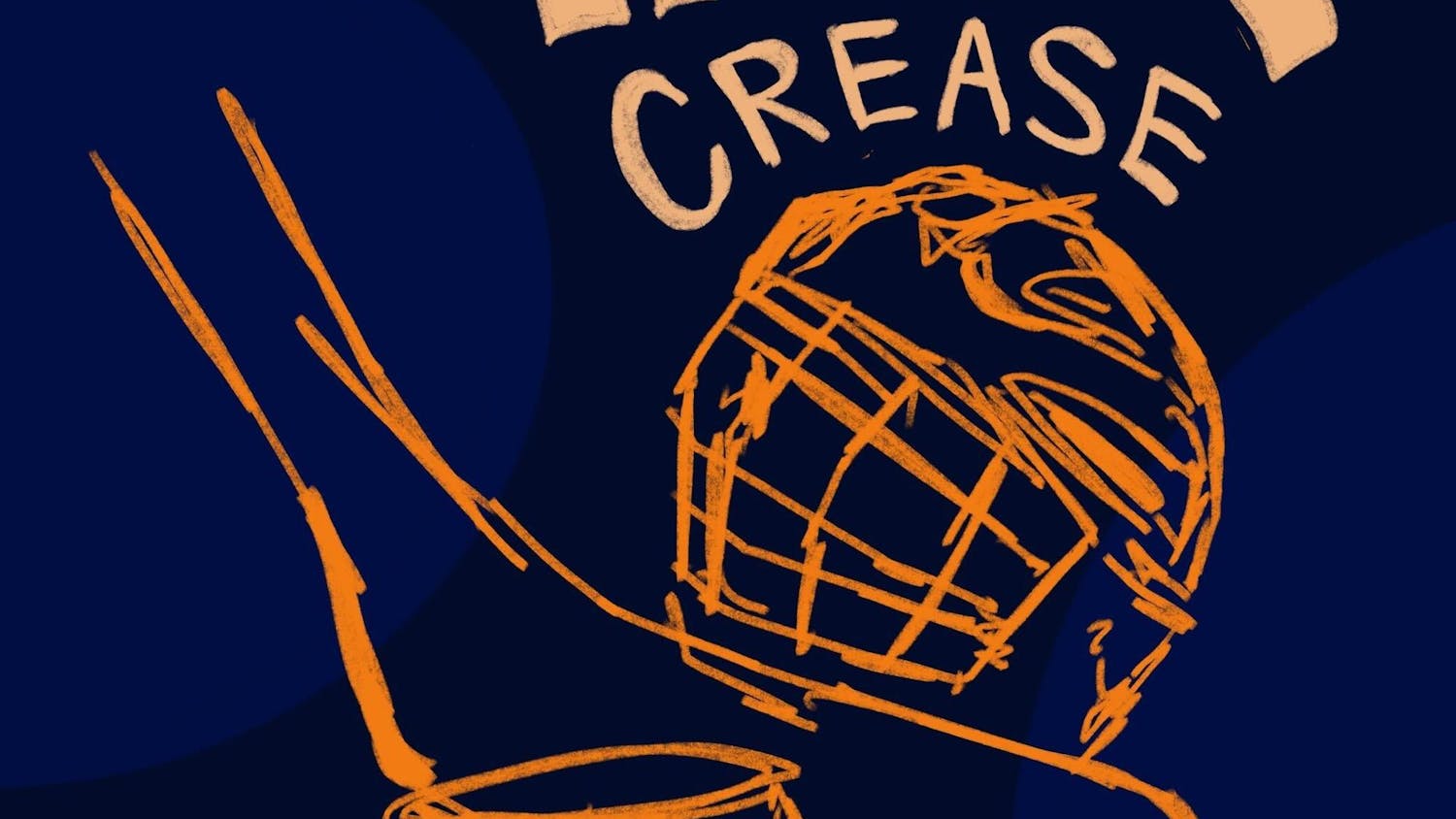Sometimes having everything going for you — being the home team, having the fastest boat on the water and boasting the best boat-handling skills — does not translate into victories. The Tufts sailing team had a first-hand encounter with this paradox at the Hood Trophy regatta this past weekend.
The nationally ranked No. 14 Jumbos, looking to defend their home waters while sailing in their unique Lark boats, were unable to win the regatta, coming in third place at the large intersectional that contained 24 of the nation's top teams. The finish was one spot better than last year's showing at their home event.
Sophomore Massimo Soriano, who skippered the A division for the Jumbos, thought the team would have a good chance to win at home, but he also was aware of the exceptionally high level of competition in only his second intersectional as the A division skipper.
"I knew we would have an advantage on our lake and in our boats, but frankly I had no idea to what extent that would manifest itself," Soriano said. "Really good sailors aren't going to need too long to figure out how to sail an awesome boat like the Lark.
"As a team, we often say that sailing on the lake doesn't necessarily give us ‘local knowledge:' that is to say, an exact formula for where to go each race," he continued. "What sailing on Mystic Lake does provide us with is a mindset to expect the unexpected and an additional degree of patience."
The Jumbos finished on Sunday with 146 points in 20 races combined between the A and B divisions, a mere two points behind the second-lace Salve Regina Seahawks. In fact, the Jumbos had the lead over Salve Regina heading into the final race, but they were unable to hold off a late charge from the Seahawks that included first-, second- and fourth-place finishes in the final four races.
"On the second day, I didn't start as well as I had on the first day and found myself battling it out mid-fleet because of that," Soriano said. "We were fast downwind but never really were able to break into the top five. I found myself taking some unnecessary risks and sometimes trying to pass five boats rather than working one at a time."
Soriano sailed with fellow sophomore Emily Shaw as crew. In fact, on Saturday, all four of Tufts' sailors were sophomores. The B division boat was skippered by sophomore Nicolas Russo-Larsson, who was accompanied by classmate Jordana Hanselman as crew. The sophomores' ability to hold their own in these competitive intersectionals has been a staple of the team so far this season and is a positive sign for the Jumbos in the future.
"I finished the first day second in [the] A [division], which was definitely something to be happy about," Soriano said. "Emily and I went out for the first race with our nerves under control and won the first race. After that opener, I knew what we were capable of. It was just going to be a matter of consistently staying in the top 10."
The tandem of Soriano and Shaw performed well given the sophomores' low level of experience in top-flight intersectionals. They won the first race of the regatta and finished in the top five in four of their first six races.
Russo-Larsson and Hanselman also held their own in the B division on Saturday, with second- and eighth-place finishes in the four races sailed.
On Sunday, though, senior tri-captains Andrew Criezis and Jennifer Watkins took to the water in the B division to try to steer the team from an average standing all the way to the top — and they came close to doing just that.
In the veteran duo's six races sailed on Sunday, Criezis and Watkins registered a first, a second, three fourths and a ninth-place finish. The only team with a better B division score on Sunday was the eventual champion Hawks from Roger Williams.
"From a team point of view, finishing third at a large intersectional with 24 colleges competing was good, but we did have the advantage of being on our home waters and sailing our unique boats, the Lark," Criezis said. "As a result, we were the fastest team on the water, but didn't sail consistently enough to win the regatta. So overall I feel we're satisfied, but it would have been great to win."
As always, the Achilles' heel for the Jumbos was getting off the starting line with good boat speed and positioning.
"What we needed to work on were our starts," Criezis said.
Battling heavy rain ripping into their eyes as they fought upwind, Criezis and Watkins often found themselves in the middle of the fleet after the first leg, but they had enough skill and experience sailing downwind in the Larks to pass several boats and move the squad up the overall leaderboard.
"[Watkins and I] had great speed and [we] crushed on every maneuver," Criezis said. "Our boat handling was above everyone else's and our downwind legs were great. We always passed boats except for the last race where almost everyone passed us and we had to fight back hard, crawling from 21st to 9th."
Next weekend, the Jumbos will head to the Coast Guard Academy for the Danmark Trophy regatta, where last year the team finished fifth out of 20 teams.





